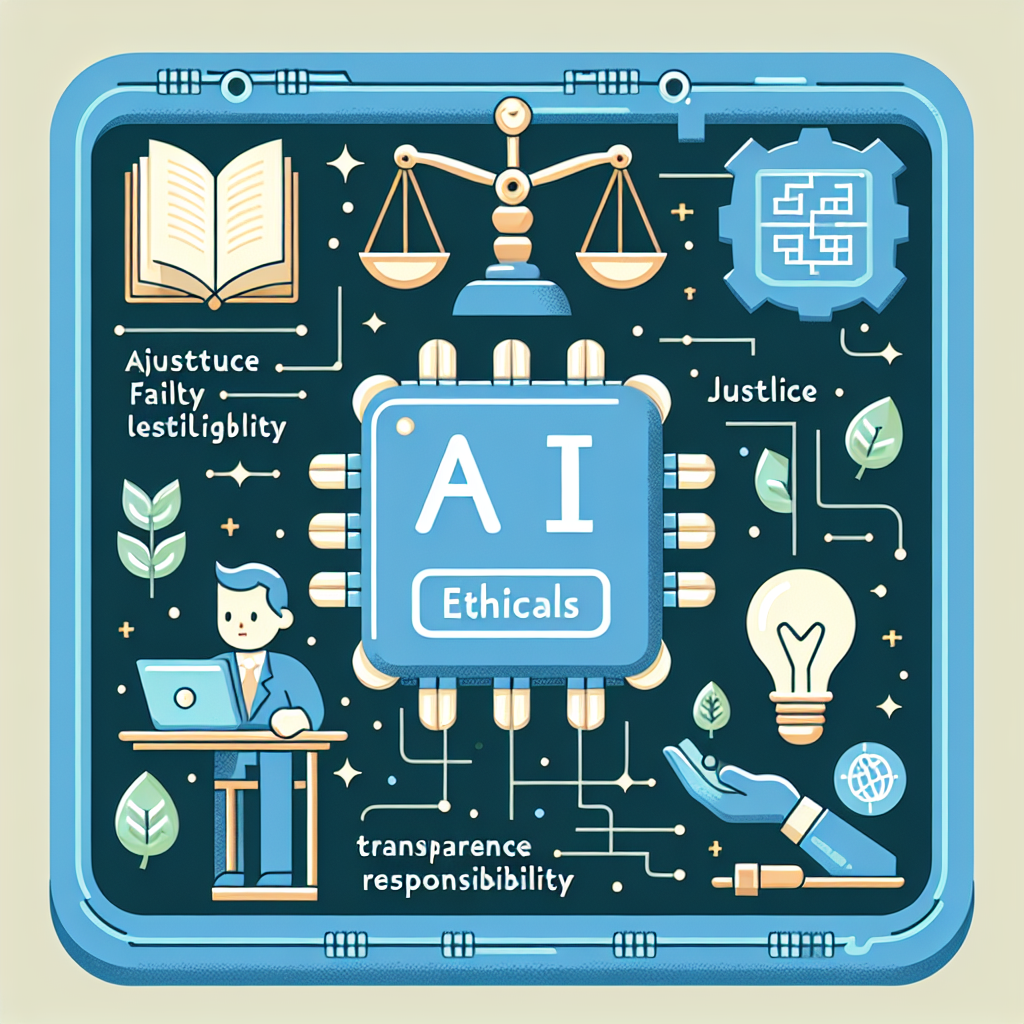Ethical guidelines for AI developers and companies have become increasingly important as artificial intelligence continues to advance and become more integrated into our daily lives. With AI technologies being used in a wide range of industries, from healthcare to finance to transportation, it is crucial that developers and companies adhere to ethical standards to ensure that AI is used in a responsible and ethical manner.
There are many ethical considerations that AI developers and companies need to take into account when designing and implementing AI systems. These considerations include issues such as bias and discrimination, transparency and accountability, privacy and security, and the impact of AI on society as a whole.
Bias and discrimination are major concerns when it comes to AI technologies. AI systems are only as good as the data they are trained on, and if that data is biased or discriminatory, the AI system will reflect those biases. For example, if an AI system is trained on data that is predominantly male, it may not perform as well for female users. It is crucial that developers take steps to ensure that their training data is diverse and representative of the population as a whole to prevent bias and discrimination in AI systems.
Transparency and accountability are also important considerations when it comes to AI technologies. Users should have a clear understanding of how AI systems make decisions and what data is being used to inform those decisions. Developers should also be accountable for the decisions made by their AI systems and should be able to explain and justify those decisions.
Privacy and security are also major concerns when it comes to AI technologies. AI systems often collect and process large amounts of data, and it is important that this data is kept secure and that users’ privacy is protected. Developers should take steps to ensure that their AI systems comply with data protection laws and regulations, and that they have appropriate security measures in place to prevent data breaches.
The impact of AI on society is another important ethical consideration for developers and companies. AI technologies have the potential to bring about significant social and economic benefits, but they also have the potential to disrupt industries and displace workers. Developers and companies should consider the broader societal implications of their AI technologies and take steps to mitigate any negative impacts.
In order to address these ethical considerations, many organizations have developed guidelines and principles for the ethical development and use of AI technologies. For example, the IEEE Global Initiative for Ethical Considerations in Artificial Intelligence and Autonomous Systems has developed a set of ethical guidelines for AI developers and companies. These guidelines include principles such as transparency, accountability, and fairness, and provide a framework for developers to ensure that their AI systems are developed and used in an ethical manner.
In addition to these guidelines, there are also a number of best practices that AI developers and companies can follow to ensure that their AI systems are ethical. For example, developers can take steps to ensure that their training data is diverse and representative, that their AI systems are transparent and accountable, and that they have appropriate security measures in place to protect users’ privacy.
Overall, ethical guidelines for AI developers and companies are crucial to ensure that AI technologies are developed and used in a responsible and ethical manner. By following these guidelines and best practices, developers can help to ensure that AI technologies bring about positive benefits for society while minimizing any potential negative impacts.
FAQs:
Q: What are some examples of bias and discrimination in AI technologies?
A: One example of bias in AI technologies is facial recognition systems that perform poorly for certain demographic groups, such as women and people of color. This is often due to biases in the training data used to train the facial recognition system.
Q: How can developers ensure that their AI systems are transparent and accountable?
A: Developers can ensure that their AI systems are transparent and accountable by providing clear explanations of how their AI systems make decisions and what data is being used to inform those decisions. Developers should also be able to justify and explain the decisions made by their AI systems.
Q: What are some best practices for ensuring the privacy and security of AI systems?
A: Some best practices for ensuring the privacy and security of AI systems include encrypting sensitive data, implementing access controls to limit who can access the data, and regularly auditing and monitoring the security of the system.
Q: How can developers mitigate the impact of AI on society?
A: Developers can mitigate the impact of AI on society by considering the broader societal implications of their AI technologies and taking steps to minimize any negative impacts. This may include providing training and support for workers who may be displaced by AI technologies, and working to ensure that the benefits of AI are shared equitably across society.

